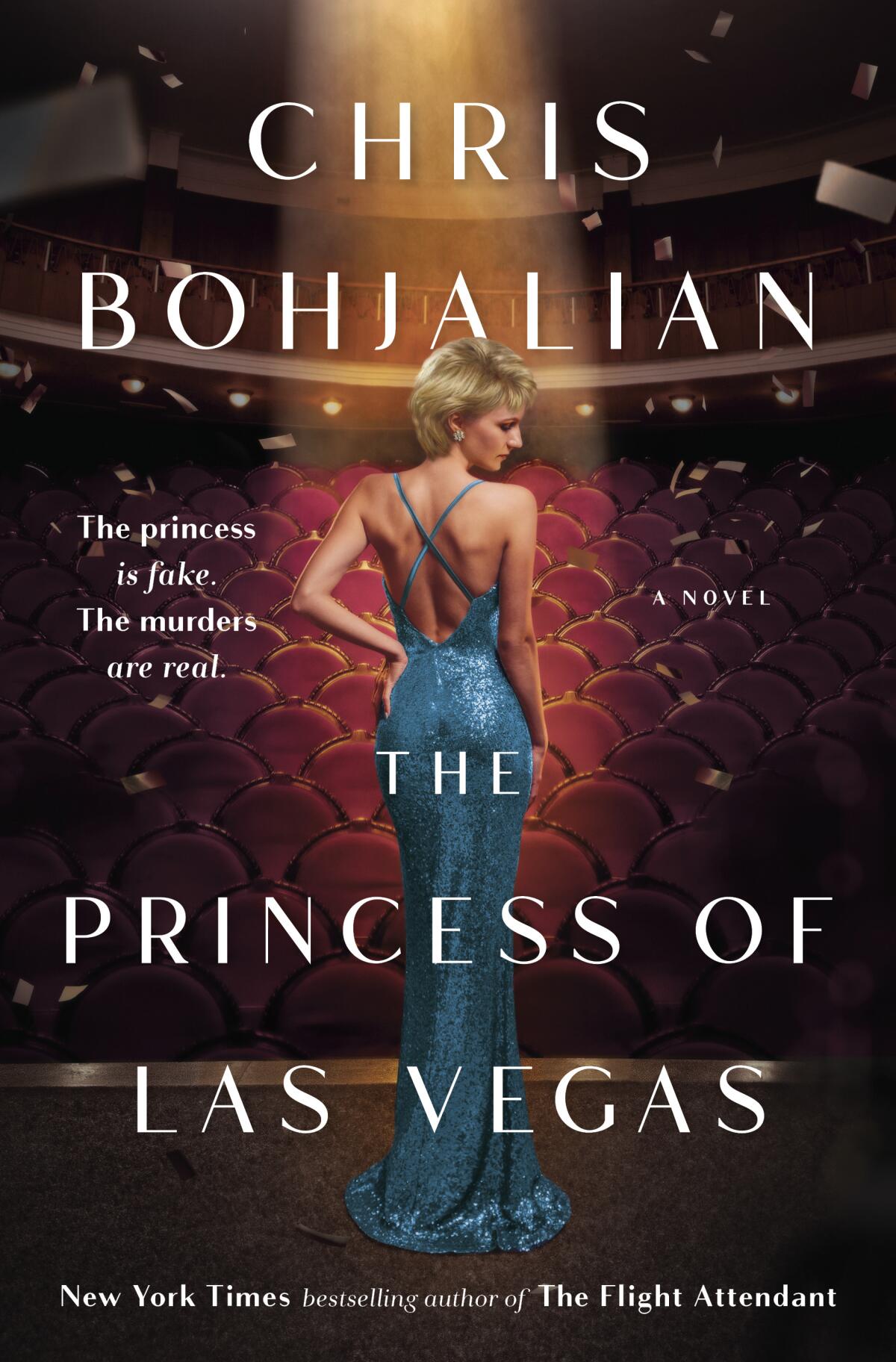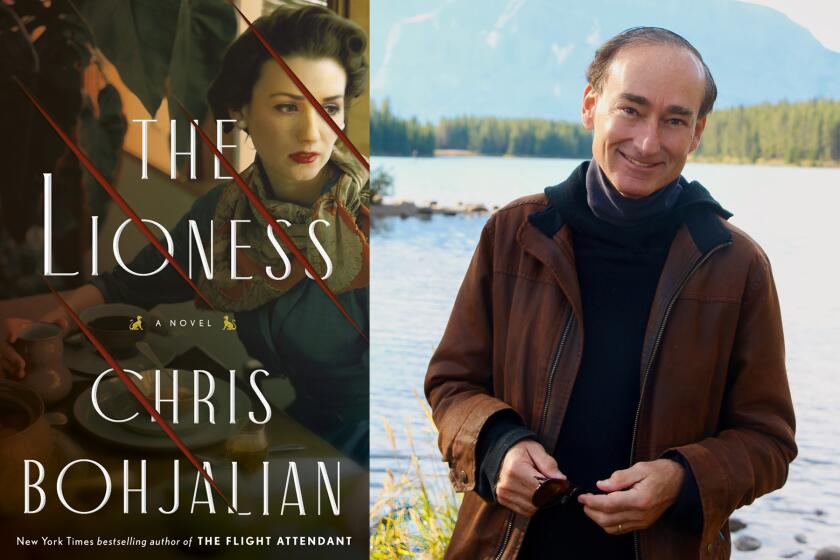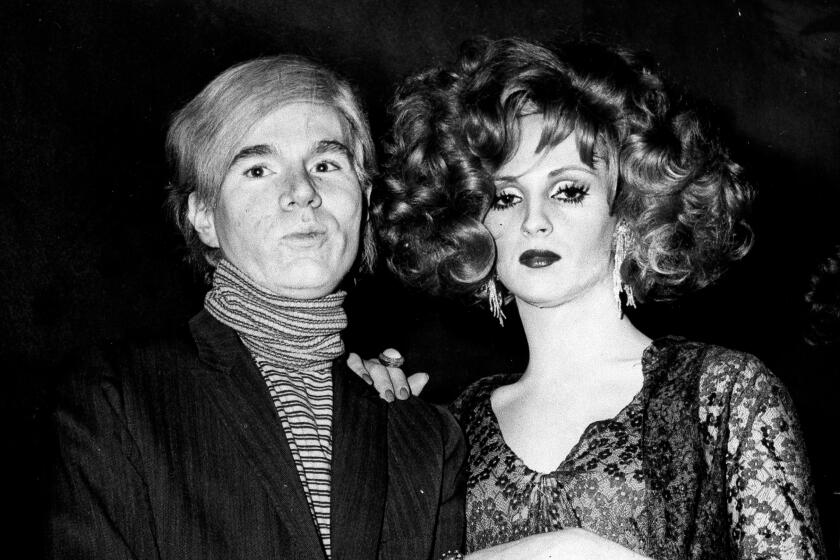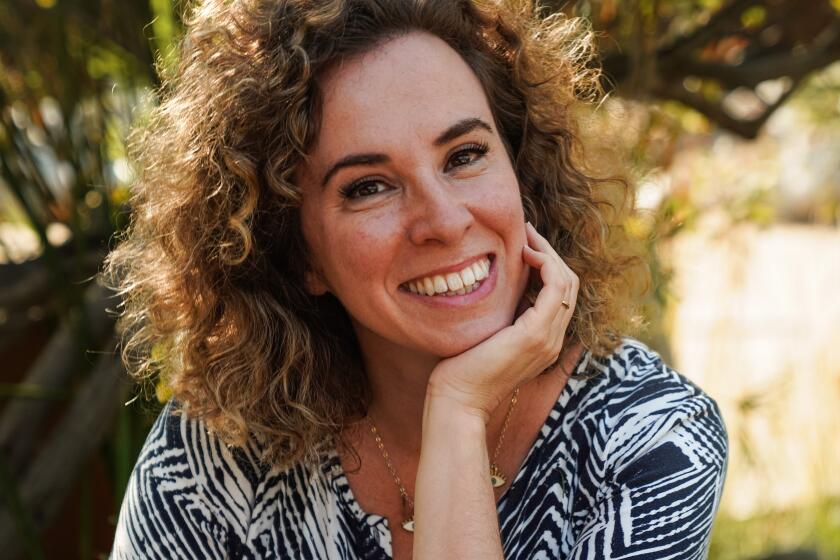Instead of writing about Princess Diana, Chris Bohjalian opted for her Vegas impersonator

- Share via
On the Shelf
The Princess of Las Vegas
By Chris Bohjalian
Doubleday: 400 pages, $29
If you buy books linked on our site, The Times may earn a commission from Bookshop.org, whose fees support independent bookstores.
Chris Bohjalian, whose 25th novel, “The Princess of Las Vegas,” was released on Tuesday, grew up in New York State, went to college in Massachusetts and lives year-round in Vermont, but this morning, as we talk via videoconference, he’s discussing Las Vegas.
The “Princess” of the title is Crissy Dowling, a Princess Diana tribute performer (sometimes known as a celebrity impersonator), who lives and works at Las Vegas’ fictional Buckingham Palace Casino. While Dowling is a talented actor and singer, her show’s popularity and longevity owe a lot to the fact that she doesn’t just impersonate Diana, Princess of Wales — she looks exactly like her, from long legs to bright blue eyes. Between the number of tourists who take in Crissy’s act and the anecdotes Crissy shares, it’s obvious that Diana Spencer is still a woman in the zeitgeist, even 25 years after her untimely death.
“I did decide early on that as interested as I am in Princess Diana, it’s too soon for me to write historical fiction about her,” says Bohjalian, sitting relaxed in a purple fleece jacket and green T-shirt before the bookshelves he often uses as a backdrop for his social media posts. “The fact is, her husband, children and grandchildren are still alive, as are her friends. It felt inappropriate to try to understand the woman herself through a novel.”
Chris Bohjalian’s latest novel, ‘The Lioness,’ features a 1960s Hollywood star’s honeymoon safari that turns into a thrilling psychological game.
However, the author decided he could approach her through her “sartorial splendor and intuitive style, how she dressed herself, and sometimes made brilliant choices and sometimes made wildly inappropriate choices. In some ways, clothing in this novel is my main character’s shield against the world, and also against her own pain. When you put on the clothes, you become the icon.”
Crissy Dowling’s own pain includes someone else who could become the icon: her identical twin sister, Betsy, who until the action starts, has lived in New England and adopted a troubled tween girl named Marissa. The distance between them has become an almost impassable chasm, even after Betsy falls in love with a man and decides she and Marissa will move with him to Las Vegas.
Bohjalian thinks there’s a “strange nexus” between Las Vegas and Diana; “part of it is danger. How ironic is it that Las Vegas has both a mob museum and a Diana museum?” In his early drafts of “Princess,” the danger was connected to Russia’s oligarchs and mob, but after Putin invaded Ukraine, says Bohjalian, “all of a sudden the Russian oligarch jokes didn’t seem funny to me.” Instead, he decided to set the book in a very specific moment in time, just before Queen Elizabeth II died and during the FTX cryptocurrency scandal.

“The world is moving so fast,” he continues. “Instead of trying to identify a real-time crime syndicate, I invented the Mastaba, which shares with Russian oligarchic organizations absolute immorality, sexism and power wielded with no moral compass. Deciding it would have been part of Las Vegas from the city’s founding was easy, since Las Vegas was a city founded on criminality until capitalism and corporate greed managed to use the serpent for their own purposes.”
What made the new draft work for Bohjalian, he says, is simple. “The crime is the MacGuffin, that Hitchcockian misdirection. What really interests me in this book are three deeply damaged people: Crissy, Betsy and Marissa.”
It’s not so much a departure for him as a writer than a continuation. “Even ‘The Flight Attendant,’ which most of the world views as a thriller, is for me, a character study of a functional alcoholic. I do this all the time. There’s emotional danger when my books work. They’re all about dread. Dread is the rocket fuel that makes the engine work.”
50 years after Candy Darling’s death, Warhol superstar’s struggle as a trans actress still resonates
Cynthia Carr’s new book chronicles the struggles of Warhol superstar and trans actress Candy Darling.
Very few people would associate dread with a man who has built such a successful career as a novelist that he’s had three books turned into films, one turned into a hit TV show and two more in the development pipeline, including 2022’s bestselling “The Lioness.” But Chris Bohjalian is, forgive the expression, an open book when it comes to how his own emotions and experiences affect his projects. “I learned an expression recently: anticipatory grief. That describes my literary superpower, if I have one. I tend to manifest dread in my work in ways that are, I hope, propulsive. Not necessarily making my books page turners, because that suggests my work has more pyrotechnics than it does. Propulsive in that these emotional touchstones cause us to care about the characters and keep fretting about them as we read.”
Bohjalian knows where the dread and grief come from. His father’s family is Armenian, and in his novel “The Sandcastle Girls” and as an activist, the author has addressed the continuing slaughter of Armenians by Turkish Muslims. He appeared in a recent documentary called “Armenia, My Home,” alongside fellow Armenian Americans, including actor Andrea Martin, playwright Eric Bogosian and poet Peter Balakian. “The documentary does address a bit of the notion of ancestral trauma, the kind that’s passed in our DNA.”
His grandparents were both survivors of the 1915 Armenian genocide. “Their stories are dark and horrifying and sad. Virtually every Armenian alive today is a descendant of those remaining survivors. So is that a reason why my books are awash in dread? Very possibly.”
Katya Apekina’s interest in the supernatural informs her new novel, ‘Mother Doll,’ a wild multigenerational story set both in modern-day Los Angeles and in Petrograd during the Russian Revolution.
But if inherited tragedy made dread familiar to Bohjalian, he says he learned how to use that feeling through watching some of the great television of the past three decades, including “The Sopranos,” “Mad Men,” “The Wire” and “True Detective.” “All of a sudden, my work began to change. It became more instantly evocative of a moment. I grew far less likely to have these very gradual ‘walk with me into the woods’ passages. Instead, a flight attendant wakes up to a dead body in Dubai.”
A book, he explains, has internal monologues, while visual media allows you to pull those monologues from inside a character’s head “and make them breathtaking and stunning. In the first eight minutes of Episode 1 of ‘The Flight Attendant,’ you see Cassie Bowden move from comedy as she high-fives a one-night stand, almost immediately into tragedy, as sirens whir past her hotel to collect the now-dead one-night stand.”
Bohjalian understands, too, that even if this kind of entertainment has been good for his storytelling, it’s also something that has changed everyone’s attention spans. “Before the smartphone, I would read for two or three hours without interruption. Now if I want to do that, I have to be sure to leave my phone on my desk and go to the other side of the house,” he says. He’s decided to keep this in mind as he composes his novels. “I want to keep my readers away from their phones when they’re reading in the same way that, say, you silence your phone when you go to see a movie or a live performance. I want to write books that give you the sense from Page 1 that you need to silence your phone.”
More to Read
Sign up for our Book Club newsletter
Get the latest news, events and more from the Los Angeles Times Book Club, and help us get L.A. reading and talking.
You may occasionally receive promotional content from the Los Angeles Times.











